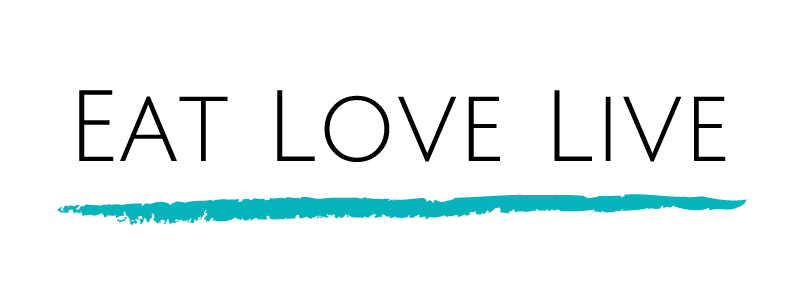You may have seen media coverage about the Australian College of Nurses position statement entitled ‘Working with Children Above a Healthy Weight: Nurse-led interventions’. In this position statement the College states that nurses should:
-
Nurses working in schools and community settings are exceptionally well placed to provide support to children and families in achieving and maintaining weight in a healthy range (Whitehead et al., 2021)
-
Clinical interventions to support children in maintaining a healthy weight range can potentially reduce the prevalence of obesity in adults, improve long-term quality of life, and reduce healthcare costs (Bae & Lee, 2020)
-
The normalisation of collection and discussion of height and weight data of all children, with longitudinal mapping on WHO recommended growth charts, as outlined in the “Working with Children Above a Healthy Weight: An ACN Toolkit for Nurses.”
However, they also state the following:
-
The understanding of obesity has evolved significantly over the past decade, recognising it as a complex condition influenced by genetic, biological, social, economic, historical, and environmental factors rather than merely individual choices about diet and physical activity (The Obesity Collective, 2024)
-
Addressing obesity effectively requires combating weight stigma, which is rooted in misconceptions about obesity’s drivers and results in negative stereotypes, discrimination, and barriers to equitable healthcare and evidence-based treatment (Obesity Collective, 2024).
-
Many of these studies (A scoping review of nurse led interventions, Cheng et al., 2021) reported minor to moderate decreases in overweight and obese children
As a dietitians and researchers into weight stigma and eating disorders we find this position statement misleading, unfounded and troubling. While we understand the sentiment, to improve health outcomes for kids, we disagree with the method.
Previous attempts to weigh children in schools to improve health outcomes has been shown to be significantly stigmatising, increase bullying, unhelpful labelling of families and increase the risk of dysfunctional eating (Hawking, 2023). Further, it reinforces to children that their health is inherently linked to their weight, which has been linked to unhelpful behaviours (Hunger, 2020).
In the review identified by the ACN (Cheng et al., 2021) which stated ‘minor to moderate decreases in overweight and obese children’ we believe this reporting in the position statement is misleading. Of the 19 studies that measured weight 10 resulted in no difference, similarly of the 55 that looked at BMI 28 had no change and four reported negative outcomes from these interventions. In terms of behaviour we also see similar results. Of the 33 that looked at dietary intake, 23 had no change and two studies reported a worse outcome that before the nurse intervention. Thirty-five studies looked at physical activity with 23 with no improvement and one with worse outcomes after the intervention. Sedentary behaviour was studied by 25 studies, of which 20 showed no difference after the intervention. Therefore, the data do not suggest that interventions as suggested by the ACN are effective.
This approach stigmatises diversity of body shapes and weights while providing inadequate supports. Weighing children then categorising them as per their weight does not provide adequate supports for the child. Children have minimal loci of control in regards to food provision. Further, it does not support families who are time poor and struggling with cost of living. From the position statement evidence, it seems that school nurses need more support to provide safe health promoting behaviours in school children.
We encourage the ACN to consult with experts in paediatric nutrition and eating behaviours to support innovative approaches that address body image and socioeconomic barriers to health. We believe that any intervention regarding the weighing of children is ill-advised and harmful.
We are open to discussing the concern raised in this open letter with the ACN or providing more inclusive, contemporary, evidenced based advice and support.
References:
Bae, J. & Lee, H. (2020). The effect of diet, exercise, and lifestyle intervention on childhood obesity: A network metaanalysis. Clinical Nutrition 40 (5). https://doi.org/10.1016/j. clnu.2020.11.006
Cheng, H., George, C., Dunham, M., Whitehead, L., & Denney-Wilson, E. (2021). Nurse-led interventions in the prevention and treatment of overweight and obesity in infants, children and adolescents: A scoping review. International journal of nursing studies, p. 121, 104008
Hawking, M. K., Dezateux, C., & Swinglehurst, D. (2023). Weighing up the future: a meta-ethnography of household perceptions of the National Child Measurement Programme in England. Critical Public Health, 33(4), 395-408.
Hunger, J. M., Dodd, D. R., & Smith, A. R. (2020). Weight discrimination, anticipated weight stigma, and disordered eating. Eating Behaviors, 37, 101383.
The Obesity Collective. (2024). Obesity in Australia: A Time for Action. https://theobesitycollective.org.au/wp-content/ uploads/2024/03/WOD-A-time-for-Action-Final.pdf
Whitehead, L., Kabdebo, I., Dunham, M., Quinn, R., Hummelshoj, J., George, C., & Denney‐Wilson, E. (2021). The effectiveness of nurse‐led interventions to prevent childhood and adolescent Overweight and obesity: A systematic review of randomised trials. Journal of Advanced Nursing, 77(12), 4612–4631. https://doi.org/10.1111/jan.1492

